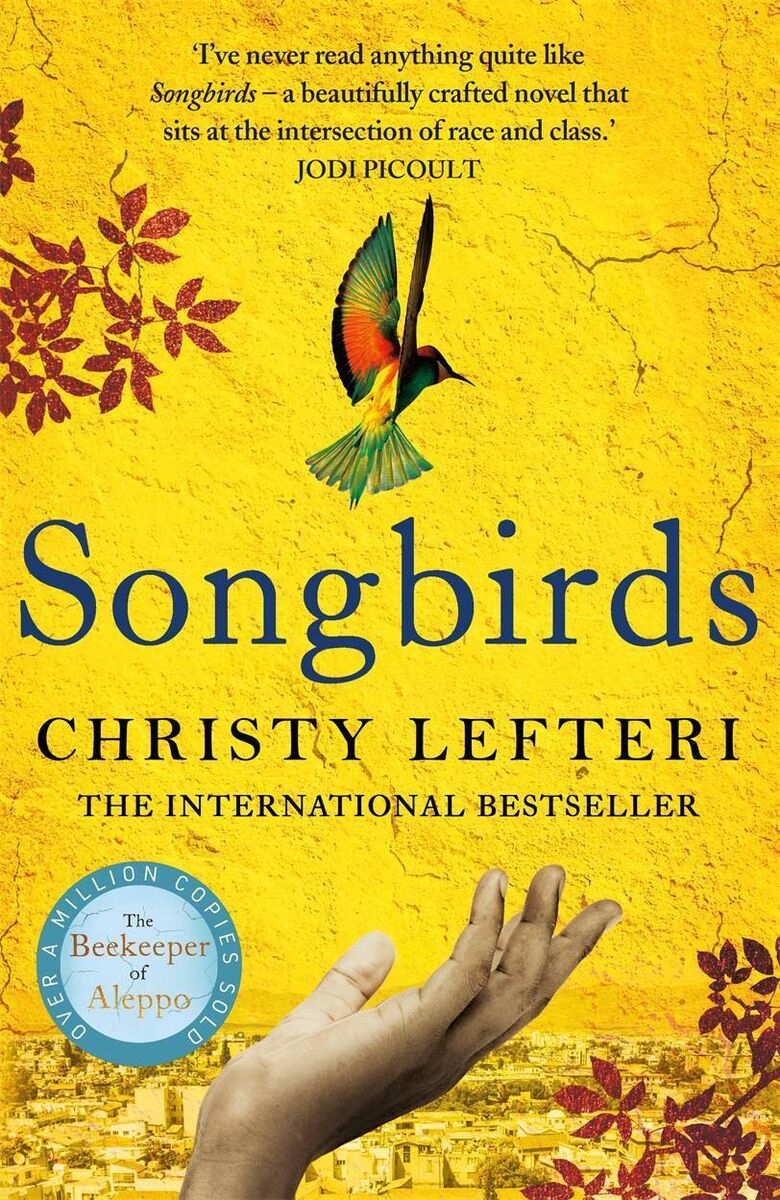Christy Lefteri: 'No one searched for these women. That didn’t shock me, that made me angry'

Christy Lefteri. Picture: Kieran Coatman
When The Beekeeper of Aleppo by Christy Lefteri was published in 2019, it struck a chord with readers around the world, selling over a million copies. A tale of two refugees whose lives have been shattered by the interminable conflict in Syria, trying to make their way to a better life in Britain, it was inspired by Lefteri’s real-life experience volunteering in a refugee centre in Athens, as well as her own parents flight from war-torn Cyprus in the mid-1970s. The phenomenal success of the book is still something Lefteri can’t quite believe.
“It feels extraordinary. I remember when I was writing it, I didn’t even dream that would happen. I think the thing that affects me the most is if, instead of imagining a number, which is mind-blowing, I think about so many people holding it in their hand or listening to it on audio, then it’s like, oh my God, all those people connected with what I was writing and that is amazing.” Lefteri, who was born in London in 1980 to Greek Cypriot parents who moved there in 1974 during the Turkish invasion, says that readers had a strong emotional connection to the book, which reflected her own experience when she was writing it.
“When I went to festivals or events, someone would put their hand up and say I cried at this bit or I cried at that bit, and often those were the parts where I had also cried or got upset when I was writing. I thought isn’t that interesting? Somehow people have almost intuitively got that.”
Lefteri’s latest book Songbirds is also a fictional account inspired by her own experience and a confluence of real-life events, this time the disappearance of migrant women in Cyprus. She will be discussing the book at an online event as part of the West Cork Literary Festival this week.
“A friend of mine sent me an article about a really disturbing situation in Cyprus, where these women had gone missing and the police weren’t searching for them. I remember reading it and I felt furious but not shocked. The fact that no-one had searched for these women because they were foreign and that didn’t shock me, that made me angry.”
Lefteri's friendship with a Sri Lankan migrant worker she had met in Cyprus gave her an additional personal perspective on the story.
“Menaka was a domestic worker for a family member who I used to stay with when I went to Cyprus. Most middle-class families in Cyprus have hired domestic workers, you don’t have to be particularly rich, and the women live with the employers. Her husband had died in a farming accident in Sri Lanka and left her with two girls. No matter how much she worked in Sri Lanka, with her wage alone she couldn’t support her family.
"She left her daughters with her mother-in-law and she decided to go to Cyprus. When I met her, she hadn’t seen her daughters for eight years. She was having a whole relationship with them by phone and online. Every single night she would sit there and chat to her daughters after she had done all her work. One year I went back and she had gone to another family. When my friend sent me this article, the first person I thought of was her. I thought, what if that had been her, if she had gone missing?”

Similar to her process when writing The Beekeeper of Aleppo, Lefteri carried out in-depth research, travelling to Cyprus and looking into the situation facing migrant women working there.
“When I was researching the book, I met this guy called Louis who was the head of a human rights organisation, everyone was going to him and saying, ‘my sister or cousin has gone missing and the police aren’t doing anything’. He told me at the beginning that he knew they were looking for a murderer. It was a different feeling to when I was writing Beekeeper, I had more of a desperate feeling when I was writing that, more sadness. Whereas with Songbirds, it was more anger, that feeling was inside me all the time when I was writing.” Writing such powerful stories inspired by real-life trauma does take an emotional toll, says Lefteri.
“With Beekeeper, I felt so guilty that I was able to be in England and when I came back from Greece, I couldn’t forget the refugee children I had met. The situation they were in broke my heart, they had to leave everything and there they were living in these camps and somehow they were surviving. I kept on thinking about the children who hadn’t made it. Also when I was writing Beekeeper, I was so anxious and depressed all the time that I needed therapy and medication. When I was writing Songbirds, my mind had settled more.”
For Lefteri, telling the story of migrant women in Cyprus was an opportunity to convey how the lives of so many women are seen as having little value.
“The fact that nobody searched for these missing women reflects how so many women are treated like they are not human. There are so many things happening to women that we don’t know about. It opened my eyes to the dangers these women are exposed to…The ones that had disappeared, that was horrendous but I heard so many other disturbing stories.”
Lefteri says she also feels a sense of responsibility to those who have inspired her stories.
“At the end of the day, I wrote the Beekeeper from the perspective of an Arabic man. Thinking about it now, how did I have the courage to do that? I think I respond to my emotions so if I’m really passionate about something, I have got to write something. I don’t overthink it too much at the start. If I had overthought it, I would have been like, 'oh my God I can’t do that’. I just did it because that is where my heart was going, as corny as that sounds, but that is what it felt like. When I started, I thought I had a responsibility to research properly and do it as sensitively as I possibly can and I thought the same when I was writing Songbirds as well.”
Lefteri feels a burden of expectation with Songbirds following the critical and commercial success of The Beekeeper of Aleppo but as long as she can continue writing, that is all that matters.
“I am actually really nervous about it. I love writing — when I write, I always feel like this is what I am meant to be doing and so I want it to be successful so I can continue. I feel like there is so much I want to write. All I hope for is that readers continue to trust me to tell stories.”
- Christy Lefteri will discuss her new novel, Songbirds, at 8pm this Friday, Jul 16, in an online event for the West Cork Literary Festival. http://westcorkmusic.ie/lfprogramme


